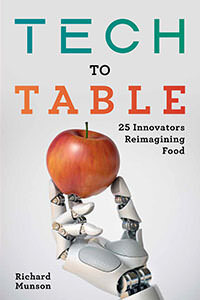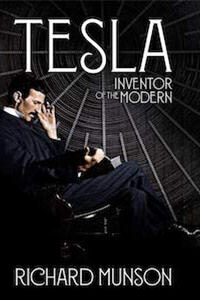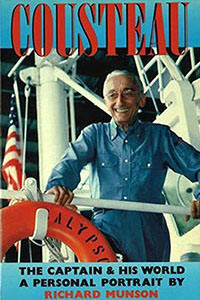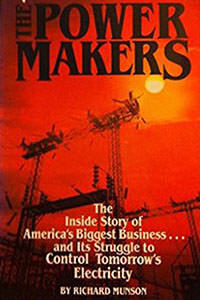Make Chicago the Center of Agricultural Innovation
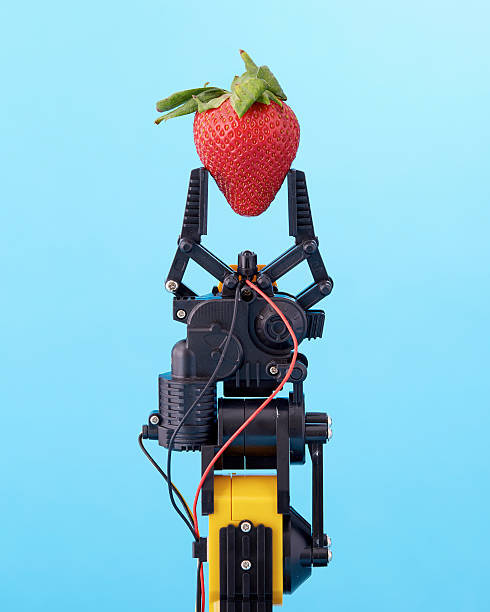
Make Chicago the Center of Agricultural Innovation
The Union Stock Yards, featured in Upton Sinclair’s The Jungle, are long gone, and most Chicagoans think our thriving city now has little to do with farms and food. Yet a revolution is brewing in agriculture, one which enables Chicago to thrive and be the hub for innovation.
The food and farm sectors have long been the economy’s least digitalized. Yet within just the past decade, new technologies have begun to redefine what it means to farm, and even the nature of food. Agricultural-technology, or ag-tech, start-ups have soared by 80 percent annually since 2012, attracting more than $30 billion in direct investment in 2020.
Entrepreneurs are reimagining how we deliver proteins, producing cultured meats and ‘tuna’ made from tomatoes. They’re cutting food waste with produce grown near consumers in urban warehouses and crops tracked by blockchain. They’re decreasing poisonous pesticides with robotic weed pickers. They’re finding better ways to nourish plants and soil, from precision watering to soil probiotics. They’re also reducing greenhouse gas emissions with carbon-negative vodka as well as animal-feed supplements that block a cow’s methane burps.
Perhaps without knowing it, you may already have eaten a burger made from plants or even stem cells, strawberries picked by robots, lettuce grown in urban warehouses, or a pastry created with a 3-D printer. Such innovations might just save your health and the planet’s. Entrepreneurs are poised to disrupt the global agriculture industry and bring benefits to the communities that embrace food and farm innovation.
Chicago was the nation’s ag innovator in the late-nineteenth and early-twentieth centuries when it launched canning, cold storage, a commodities-trading marketplace for risk management, and industrialized meat production. A century later, it can be home to new innovations.
Becoming an ag-innovation hub requires little direct investment from Chicago or Cook County, largely because food and farm innovators prefer private-sector investments to politically determined subsidies. The city and country, however, could provide the zoning and tax incentives to spur the creation of incubators for agricultural entrepreneurs. They could link restaurant chefs and private-equity investors to emerging food-based technologists. They could integrate farm and food advances into their climate-change strategies. They could encourage region-based universities to work with their downstate counterparts on urban-rural cooperation. Through social media and outreach, they could encourage farm and food entrepreneurs to locate in Chicagoland.
Several food-based start-ups already have transformed a former, 100,000-square-foot slaughterhouse into a modern research and production facility. The Plant retains the smoke-stained bricks from its former pork production, but the revived structure serves as a laboratory for alternative proteins, including algae and mycelia being advanced by Back of the Yards Algae Sciences. That biotechnology company’s CEO, Leonard Lerer, observes that “the meat of hundreds of millions of pigs was probably processed in here, and we’re now developing burgers that are 100-percent algae-based and cruelty-free.”
These organisms promise to deliver proteins sustainably, with far less environmental damage than our current system. Processors already insert algae-based oils into cosmetic creams, flavorings, colorants, ice cream, and vitamin supplements—in what has become a $5 billion industry.
Lerer thinks bigger. He calls algae “the source of life” that enjoys numerous attributes. They grow ten times faster than soybeans, and they need one-tenth of the land area to produce the same amount of plant material. They thrive virtually anywhere, including nonproductive and nonarable land; they produce multiple yields throughout the year; and they do not compete with other crops for soil. They produce no waste material. Pound for pound, they contain twice the protein of meat, more beta-carotene than carrots, more iron than spinach, and substantial amounts of omega-3 fatty acids. Farming algae does not cause erosion or require synthetic fertilizers or pesticides. The organisms do not even demand fresh water, with the protists being quite happy in brackish water, seawater, or wastewater.
To appreciate the ingenuity now occurring in agriculture, consider that Back of the Yards creates cattle and poultry feed, thereby reducing a farmer’s use of toxic pesticides; when applied at fish farms, its algae-based proteins replace conventional fish meal—typically a combination of anchovies, herring, menhaden, and other small, open-ocean fish—whose mass harvesting destroys marine ecosystems. Lerer’s biodigester’s mixture also creates a serum for growing cultured meats—burgers and chicken nuggets obtained from stem cells rather than slaughtered animals—and he’s developed algae-based heme, an iron-rich compound, to serve as the foundation for plant-based meat substitutes like those produced by Impossible Foods or Beyond Meat.
Chicago, moreover, can be the magnet for ag-tech investing. S2G Ventures, for instance, already has become a leading venture capital firm that backs entrepreneurs improving the food system. Its portfolio includes Beyond Meat, one of the largest producers of plant-based meat alternatives; Apeel Sciences, whose invisible and edible plant-based coatings increase the shelf life of fresh produce and cut food waste; and Benson Hill, which uses data science and machine learning to increase the genetic diversity of plants.
Chicago may be an urban center, but it can build on its agricultural roots and embrace the disruptive innovation sweeping the farm and food sectors. In the process, it can help bring more nutritious food to more people, sustainably.
Richard Munson, based in Chicago, is the author of Tech to Table: 25 Innovators Reimagining Food.


